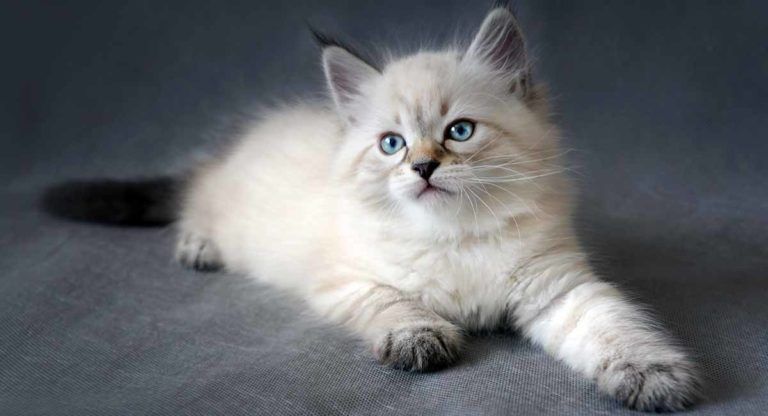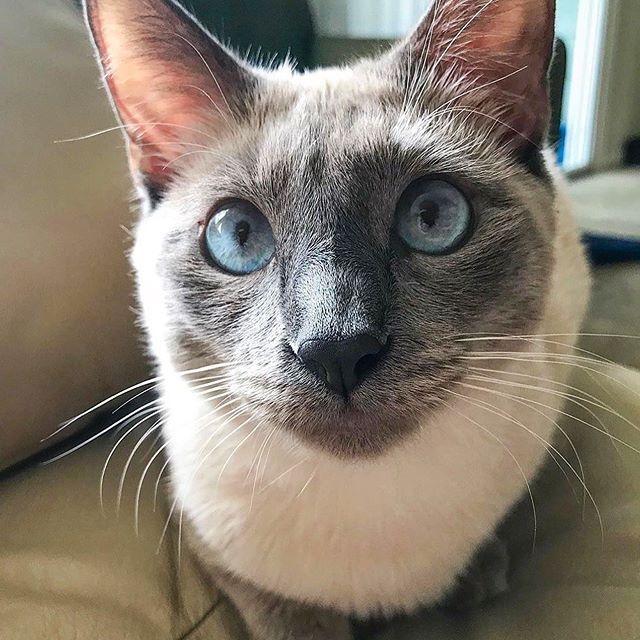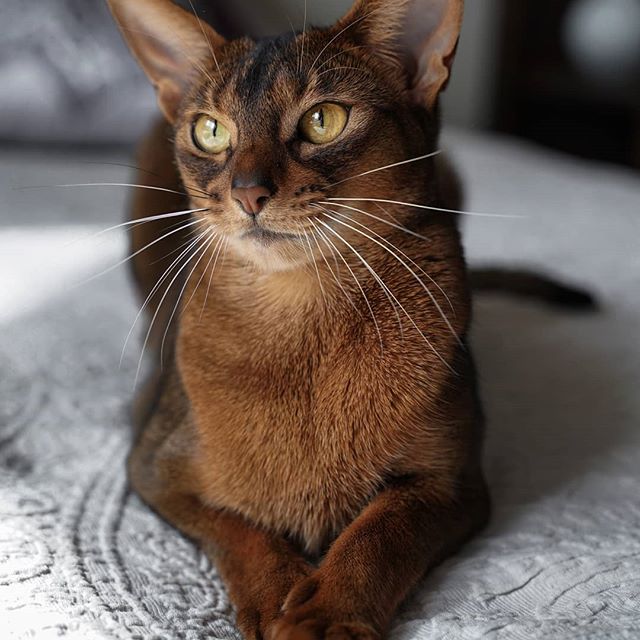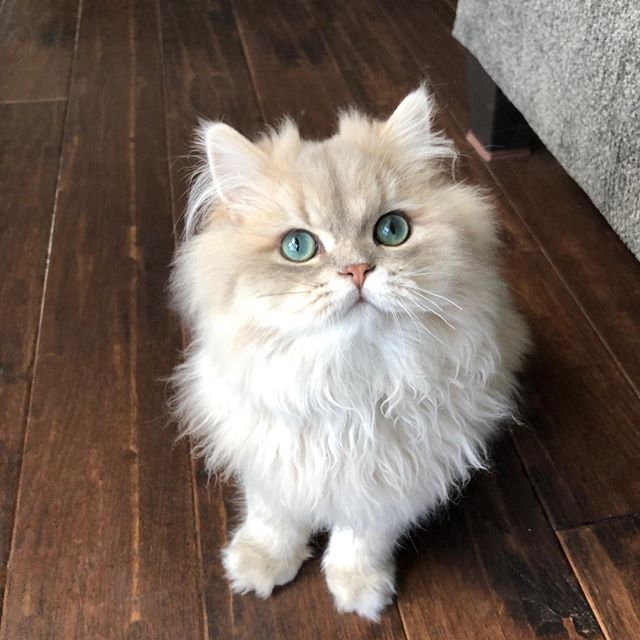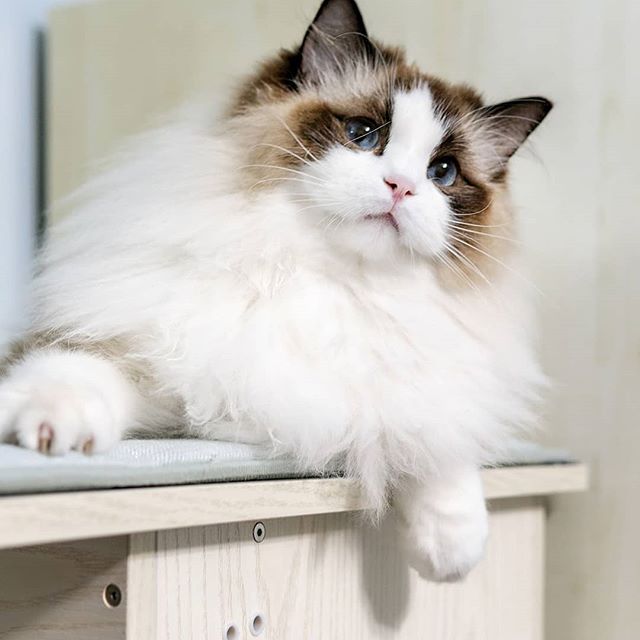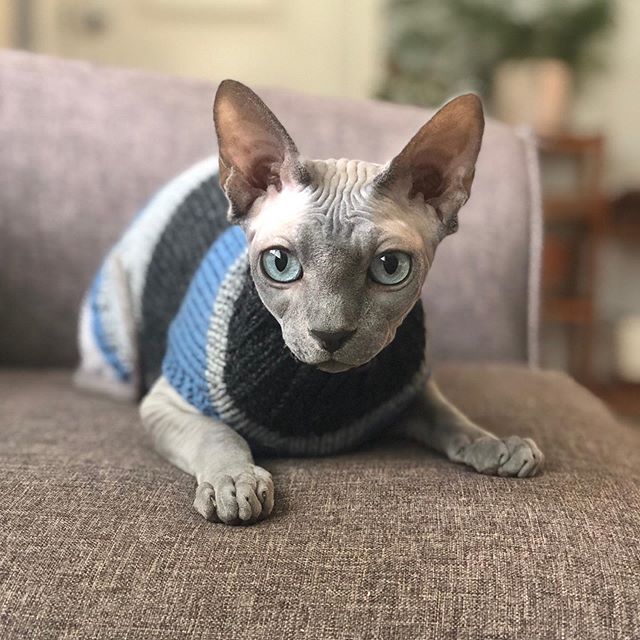Siberian cats, also known as Siberian Forest cats or Moscow Longhairs, are considered Russian treasures ranging from medium to large. This breed makes an excellent feline companion because of its adorable personality. Not only are they charming on the outside, but their beauty reflects on the inside too.
This breed is outgoing, affectionate, friendly, and active. They get along well with kids and like the company of other cats and even some nice dogs. The Siberian has a gorgeous fur coat that conceals his soft good temperament while protecting him from the weather. The Siberian cat is highly lively and intelligent. The breed is notorious for taking a long time to mature; during the first five years of their existence, they are still seen as kittens and have a lifespan of 11 to 18 years. Despite being courageous and independent, the Siberian frequently wants company.
They are supposed to be compassionate cats with a deep awareness of other people’s feelings and readily provide companionship and assistance to their pet families. With the remarkable personality of this cat, It’s only natural for people harboring this breed of cats to want to know and learn what they can do better and to care for and understand their feline creature friends as they journey along with this breed. First, we will be giving information on the pros and cons of this breed, which we will later leave you to consider if the Siberian Cat is a good family cat for you. And if they fit into what you want for a pet. We have put this article in place to take you through a few traits and personalities of the Siberian cat breed.
You can also use the quiz below to find out what cat breed is fit for you.
FIRST OFF, WHAT DOES YOUR HOME LOOK LIKE?





WHAT IS YOUR SPIRIT ANIMAL?
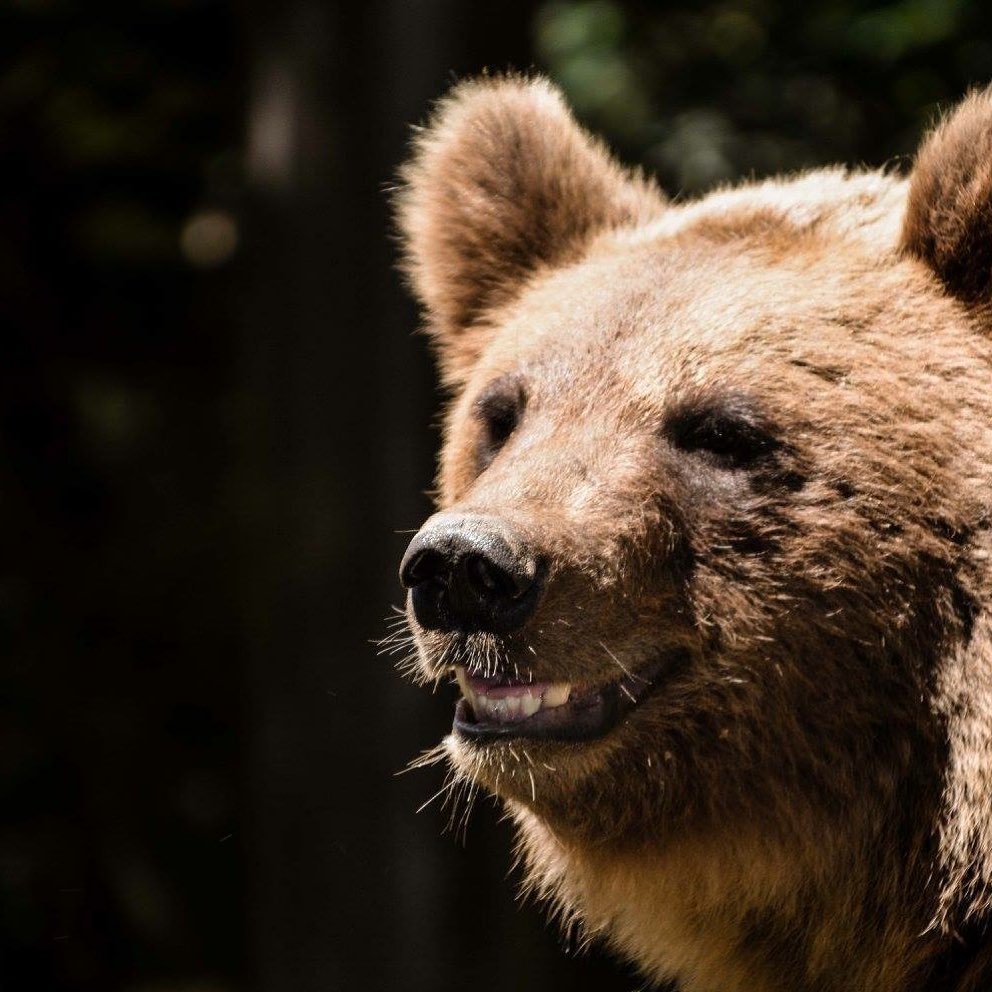
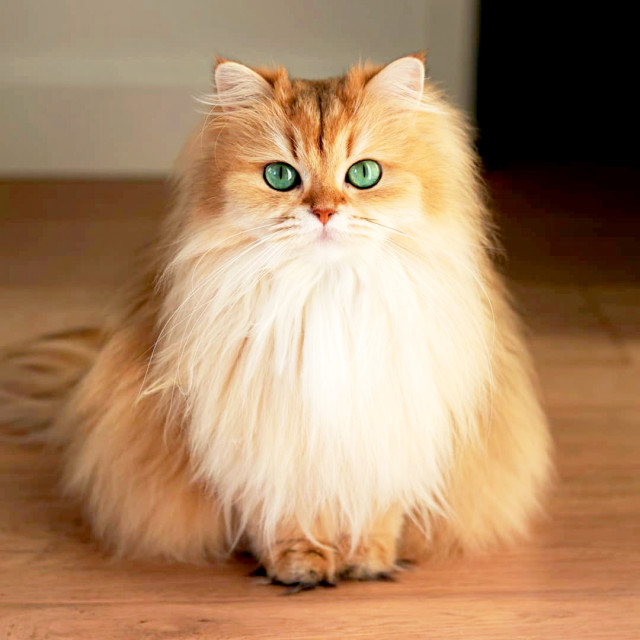

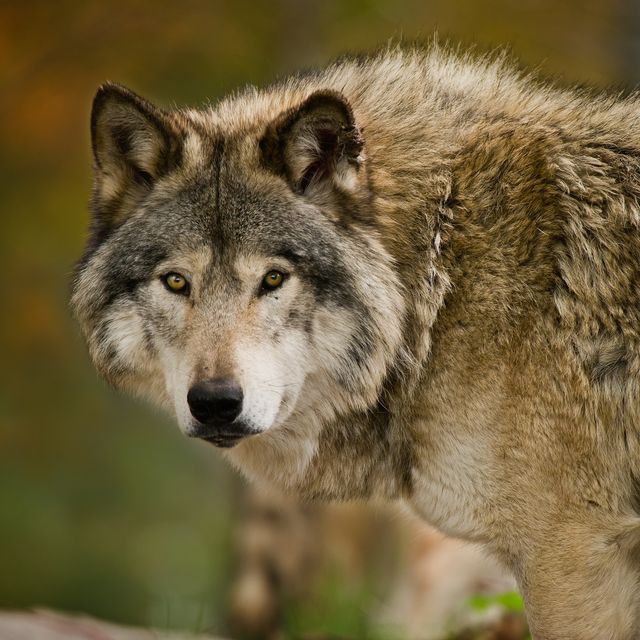
PICK A GRADIENT FROM BELOW:





WHICH OF THESE POSITIVE WORDS RESONATES WITH YOU?




WHAT WOULD YOU DO IF YOU HAD FREE TIME?





WHICH OF THESE SETTINGS DO YOU PREFER?




FINALLY, WHICH WORD DESCRIBES YOU THE BEST?

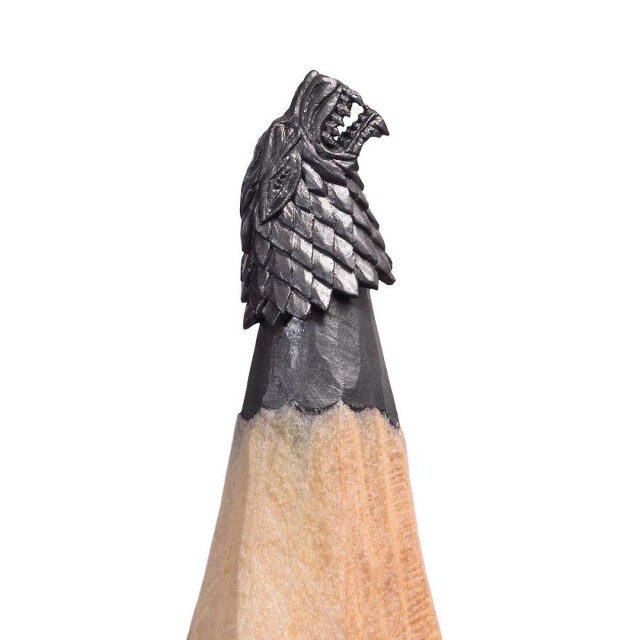


Share your Results:
Siberian Cat Pros
Ease of training
Siberian cats are renowned for being extremely clever and curious, making them easy to train. They enjoy participating in household activities, and because of their kind and inquisitive nature, they are always focused on their humans, making teaching and training easy. However, their disposition is another factor that contributes to their rapid learning. Siberian cats are renowned for their calmness, affection, and love of human company. They frequently follow their human companions from room to room as they perform household duties. In addition, Siberian cats are well known for being amiable. They cheerfully greet everyone and, provided their interactions are positive; they can make friends with very young children, other cats, and polite dogs. These characteristics mean that training them will be easy for their owners.
Chatty
Cats have a variety of sounds and tones that they use to communicate their feelings with their owners. Over time, both parties learn what these sounds and tones mean. Siberian cats are very talkative and don’t hesitate to make their voices heard. Cats typically purr, chirp, or growl to communicate to their owner to express their current mood. Siberian cats are known to purr frequently and enjoy making attractive cat noises to let you know what’s happening. While some Siberian cats purr affectionately, others make loud, nasty screeches that may be unpleasant. Nevertheless, just as many Siberian cats communicate, it doesn’t mean that all of them do, as some are more expressive than others. It’s up to you to determine if a chatty Siberian is the kind of pet you’d like.
Companion
Siberians have a reputation for being affectionate and devoted to their owners. They are also known for being the cuddly and lap cat kind. Other than being a great playmate and getting along well with kids and other animals, Siberian cats should be around the top of the list of wonderful pet companions. Siberian cats are excellent companions to their pet parents. However, during the cuddly moment with your feline friend, It’s crucial to leave space for their paws so they can easily flee if they choose.
Energetic
When a cat is energetic, it is easier to communicate with its owners and recognize when they may be experiencing problems. One of the simplest ways for cat owners to recognize when their cats are having problems is when there is a change in their behavior. For example, most of the time, cats become less chatty and active when ill. Therefore, it could be wise to consider the Siberian cat.
Ability to withstand cold weather

Given that this breed is native to Russia, and Russia is known for being chilly, some weather circumstances might work more in this furry body’s favor than against it. They can endure cold climates because of their thick Siberian and hairy coats, which effectively insulate them from the intense cold. However, we are happy to set the record straight for anybody wondering if that’s a problem if they live somewhere with frigid weather.
Long living
Siberians typically live from 10 to 18 years and only achieve adulthood at five. Siberians tend to be in good health and are less likely to develop numerous genetic health problems; therefore, with the proper treatment, they can easily outlive the average life expectancy, while others may not even reach the age of ten. Remember that every cat is unique, and its lifespan is affected by a wide range of variables, including its pet parent, diet, and personal health situations.
Outdoor friendly
Siberian cats are undoubtedly curious, but they also enjoy challenges and adventures. Siberian cats are accustomed to exploring the outdoors and navigating various settings instinctively because they were designed and raised for outdoor living. Although, the most convincing justification in favor of letting a cat outside is centered on exercise and boredom. Siberian cats are outdoors friendly and can survive outdoors better than other cats, which may be considered an advantage because obesity and health problems are more common among indoor cats. However, it’s still advised to keep them inside if you can because cats that get used to staying outside risk being involved in many hazards.
Intelligence
Siberian cats have an intelligent and inquisitive personalities, with a curious mentality and the willingness to acquire a new skill or task. They quickly evolve by adjusting to their surroundings. As a pet parent of a Siberian cat, you should develop activities that will help increase their cognitive quotient since they are considered an intelligent cat breed. Even though Siberian cats enjoy playing, they are still generally regarded as intelligent kind of cats.
Siberian Cat Cons
Siberians may seem like the ideal kind of pet to maintain. Still, prospective Siberian cat owners should consider some drawbacks to this breed before deciding to add one to their family. The information we will provide will also help those who currently own Siberian cats better understand their kind.
Excessive shedding
Siberians are a breed with moderate to heavy hair loss. Their coat is thick, and their undercoat is dense. Even though it could be a little bothersome, Siberian cat shedding is normal. Regular grooming and a high-quality diet are the only things you can do to guarantee your Siberian cat’s coat is healthy and stop uncontrollable shedding. Their longer, heavier winter coat is shed twice a year, in the spring, and their lighter summer coat is shed in the fall. Consider a different breed if you don’t like having cat hair on numerous surfaces in your house or the occasional hairball. They often don’t have distinct shedding seasons and shed slightly year-round. Still, during these times when they shed skin, pet parents should pay more attention because some of their health issues manifest in the form of shedding coats and color dullness. For someone with a hectic schedule, taking care of such a cat daily could be a headache.
Health issues
Unfortunately, this unusual and lovely cat can exhibit typical health issues and become ill. Because of the cat’s distinctive heredity, most of these diseases have evolved. Through the pedigree gene pool, these disorders have been passed on from one generation to the next. Fortunately, a veterinarian can often cure these illnesses, allowing the cat to regain complete and long-lasting health.
Nevertheless, the Siberian cat breed does not have any unique health issues except for one, thickened heart muscle disease (HCM). Although cats are generally susceptible, they can contract common diseases.
According to specific research carried out, Siberian cats are more likely to develop bladder stones, a disorder of the urinary tract where minerals accumulate and form stones that make urinating exceedingly uncomfortable or impossible. Therefore, in the first instance, it is advised to have regular veterinary checkups and feed your pet balanced, nutritious food when unexpected symptoms appear.
Hypoallergenic
Generally speaking, a hypoallergenic cat does not exist.
So, contrary to the common assumption that not all cats are considered hypoallergenic and Siberian cats, in particular, are not hypoallergenic, that means they don’t set off the allergy reaction of people allergic to cats. It is wrong, and Siberian cats are hypoallergenic. Although the itch-causing protein called Fel D 1, which triggers people’s allergies, is primarily found in their saliva, skin, and sebaceous glands. This breed has a full coat covering the skin that reduces the transmission of the protein and produces milder allergic reactions than most other feline animals. Therefore, Siberian cats may be considered to be a little hypoallergenic.
Additionally, some scientific research and reports have revealed that this fluffy breed’s males, who generate significantly more of the most prevalent allergen than females, produce far less Fel D 1 protein than typical cats. This makes it possible for many people who suffer from cat allergies to keep this one as a pet.
Though, it is essential to get advice from your specialist before bringing home a Siberian cat.
Attention-demanding
Siberian cats are highly sociable creatures who like their owners and often don’t do well when left alone for an extended period. These animals do best in homes where people are frequently present and eager to play. The Siberian is friendly with most people and makes a wonderful addition to households with kids and other animals. So if you spend most of the time away from home, look at other less attention-demanding cats to adopt, or consider adopting a partner alongside the Siberian if it has to be a Siberian breed you want.
Hereditary Cancer
Although Siberian cats are predominantly genetically predisposed to hereditary cancer, other breeds are also susceptible. Therefore, the cat’s longevity is still conceivable with the proper diagnosis and care. It appears that the Siberian cat’s pure white lines are the only ones affected by this genetic kind of cancer, primarily If the pure whites are descended from a “Gesha Olenya Krasa” and “Dolka Olenya Krasa.” Then the likelihood of a Siberian being diagnosed with hereditary cancer rises noticeably. The discovery of an oncogene caused this cat’s cancer to develop (cancer-causing gene). It’s crucial to investigate parentage to determine whether the cat’s parents or grandparents have this condition. Though this ailment as a genetic disorder is not entirely recognized by veterinary science.
Grooming
You may be compelled to assist the Siberian cat’s luxurious coat to stay tangle free by giving them a consistent, brief shower. Although it only takes a few minutes every week to complete, the more frequently you can keep up with it, the better. They may require more work during winter as their coat becomes thicker during this season.
Expense
Siberian kittens often cost between $1000 and $4000. Due to their great demand and the fact that there aren’t many purebred Siberian cats outside of Russia, this breed is pricey. Additionally, the cost will be influenced by your location, the availability of breeders, and market conditions. You might need to be added to a waiting list by some breeders.
Size
Siberian cats come between medium to large sizes, which some people could find unattractive. However, even though these size conditions are heritable, giant cats are more likely to develop obesity or hip dysplasia than small to medium-sized cats.
Final thoughts
Weighing the benefits and drawbacks is one of the crucial steps to take when attempting to have a cat as a pet. We’ve covered all the facts you need to know before getting a Siberian cat. The ability to get along with other animals and children, as well as their attractive outlook and endearing personality, are just a few of the traits that make the Siberian cat the desired companion animal. However, you should be aware of other aspects of having this kind of cats, such as their need for regular activity and specific grooming requirements. Unless people give to pet groomers during their busy hours, there may be better options for people with a hectic schedule. Before choosing to buy one, potential owners should consider the factors mentioned earlier. However, the advantages exceed the drawbacks.
Further Reading
